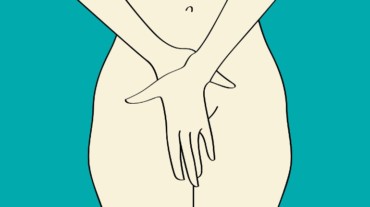
Endometriosis is a common gynaecological condition in which the tissue that lines the uterus, referred to as the endometrium, tends to grow on the ovaries, bowel, rectum, vagina or pelvic lining. The additional tissues which are present result in the periods being significantly more painful than they usually are.
Endometriosis usually affects women during their reproductive years. It can be a long-term condition that can have a significant impact on your general physical health, emotional wellbeing, and daily routine.
It triggers a chronic inflammatory reaction resulting in pain and adhesions. While some women who suffer from endometriosis experience severe pelvic pain, others have no symptoms at all. Some may even regard their symptoms as simply being regular menstrual pain.

What are the symptoms of endometriosis?
The most common symptoms of endometriosis are:
Many of these symptoms develop a few days before a woman’s period and disappear a few days after her menstruation has stopped.
How will your gynaecologist diagnose endometriosis?
As the symptoms of endometriosis are not very specific, the diagnosis for this disease cannot be made on the basis of just the symptoms. However, symptoms can be the first indication that your gynaecologist has towards diagnosing endometriosis.
A clinical examination can provide additional information to your gynaecologist–during which s/he may look for tenderness, nodules, or swelling of the vaginal wall.

The gold standard for the diagnosis of pelvic endometriosis, however, is currently a diagnostic laparoscopy.
If your gynaecologist suspects endometriosis based on your symptoms and clinical examinations, she may also try medical treatment without establishing a definitive diagnosis first to reduce the symptoms. If these treatments help in relieving your symptoms, you may decide not to undergo laparoscopy.
What is the treatment for endometriosis?
Pain killers can help you manage symptoms. Your doctor may also prescribe hormonal treatments such as contraceptives pills, oral progestogens, and anti-progestogens, amongst other things.
Select Topics of your interest and let us customize your feed.
PERSONALISE NOW
Surgery can treat or remove areas of endometriosis. The surgery recommended by your gynaecologist will depend on where the endometriosis is and how extensive it is.
Alternative therapies can also help you deal with endometriosis. Acupuncture, behavioural therapy, dietary supplements, reflexology, and herbal medicine have been known to help.
The unpredictability of the condition is often frustrating and exhausting, but you need to consult with their gynaecologist to understand the condition and cope with it.
Get Latest Updates on Preventive Care, Family Care, Reproductive Care, Self Care